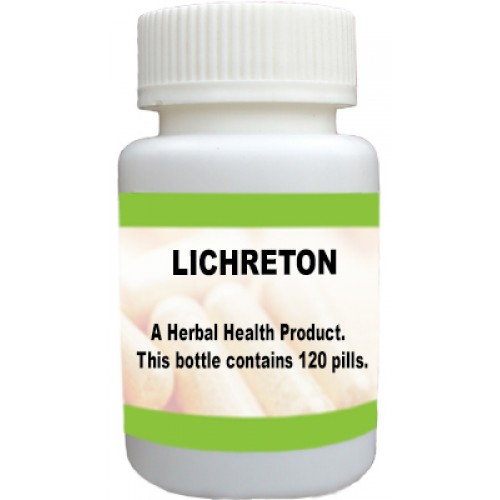Lichen planus is an inflammatory skin condition that can cause itching and rashes. Thankfully, there are natural remedies for lichen planus that can help reduce the symptoms and improve the skin's overall condition. Herbal remedies for lichen planus can be used as an effective alternative to traditional treatments, and they are often much gentler on the skin. In this blog post, we will explore the top five herbal remedies for lichen planus so that you can find the best one for your needs.
What is Lichen Planus?
Lichen planus is a chronic inflammatory skin condition affecting millions worldwide. It is characterized by the development of small, itchy, flat-topped bumps on the skin, usually in a symmetrical pattern. Lichen planus can occur on any body part, including the scalp, nails, mouth, and genital areas. The exact cause of lichen planus is still unknown, but it is believed to be an autoimmune disorder where the body's immune system mistakenly attacks the skin and mucous membranes. Understanding the nature of lichen planus is important to manage its symptoms and explore suitable treatment options effectively.
Understanding the Symptoms of Lichen Planus
Lichen planus can present a range of symptoms that can vary from person to person. The most common symptom is the appearance of small, itchy, flat-topped bumps on the skin. These bumps may be red, purple, or white. They can occur anywhere on the body but are often found on the wrists, ankles, lower back, and genital area. Other symptoms of lichen planus may include thinning of the hair or nail abnormalities. Sometimes, the bumps may be accompanied by a burning sensation or pain. It's important to recognize these symptoms and seek proper diagnosis and treatment for lichen planus.
Conventional Treatment Options for Lichen Planus
Conventional treatment options for lichen planus typically focus on managing the symptoms and reducing inflammation. Topical corticosteroids are often prescribed to help alleviate itching and reduce inflammation. Sometimes, oral corticosteroids or antihistamines may be prescribed for more severe symptoms. Immune-modulating drugs, such as retinoids or immunosuppressants, may also be recommended. These conventional treatments can be effective, but they often come with side effects and may not be suitable for long-term use. Discussing all treatment options with a healthcare professional to find the most appropriate approach for managing lichen planus is important.
The Benefits of Natural Remedies for Lichen Planus
Natural Remedies for Lichen Planus offer several benefits for individuals seeking alternative treatment options:
- These remedies are often gentler on the skin than conventional treatments, reducing the risk of side effects. They also relieve itching and inflammation, which are common symptoms of lichen planus.
- Herbal remedies are typically more cost-effective and accessible, making them attractive for those looking to manage their condition without breaking the bank.
- Natural remedies offer a holistic approach to healing, focusing on overall health and well-being.
By incorporating these remedies into your lichen planus treatment plan, you can experience the benefits of natural, gentle, and effective relief.
Herbal Remedies for Lichen Planus: A Comprehensive Guide
This comprehensive guide will explore the top Herbal Remedies for Lichen Planus. These natural remedies offer a gentle and effective alternative to conventional treatments. Various herbal remedies for itching and inflammation improve the overall skin condition, from soothing creams to healing oils. We will delve into each remedy, discussing its benefits, application methods, and potential side effects. By understanding the power of herbal remedies for lichen planus, you can make an informed decision about the best treatment for your needs. So, let's dive in and discover the natural healing potential of these herbal remedies.
Tips for Using Herbal Remedies for Lichen Planus
When using herbal remedies for lichen planus, it's important to remember a few tips to maximize their effectiveness. Firstly, please consult a healthcare professional before starting any new treatment to ensure it is safe and won't interfere with existing medications or conditions. Secondly, follow the recommended dosage and application instructions provided with the herbal remedy. Consistency is key, so use the remedy as directed and stick to a routine. Additionally, give the herbal remedy time to work – natural remedies may take longer to show results compared to conventional treatments. Finally, listen to your body and notice any changes or reactions. If you experience adverse effects, discontinue use and consult a healthcare professional. By following these tips, you can make the most out of your herbal remedies for lichen planus and support the health of your skin.
Key Considerations for Choosing the Right Herbal Remedies
When choosing herbal remedies for lichen planus, there are a few key considerations to keep in mind:
- It's important to consult with a healthcare professional to ensure the chosen remedy is safe and suitable for your specific needs. They can guide dosage and potential interactions with any existing medications.
- Consider the reputation and quality of the herbal product or brand. Look for trusted manufacturers that prioritize purity and efficacy. It's also helpful to read reviews and testimonials from other individuals who have used the herbal remedy for lichen planus.
- Be patient and give the remedy time to work.
Natural remedies may take longer to show results, so consistency and perseverance are essential for optimal benefits.
A Look at the Science Behind Herbal Remedies for Lichen Planus
Herbal remedies have been used centuries to treat various ailments, including lichen planus. While the scientific research on the effectiveness of herbal remedies for lichen planus is still limited, some promising studies suggest certain herbs may offer relief. For example, studies have shown that aloe vera has anti-inflammatory properties and may help reduce symptoms of lichen planus. Turmeric, another herb commonly used in traditional medicine, has been found to have anti-inflammatory and immunomodulatory effects, which could benefit those with lichen planus. While more research is needed to understand the science behind herbal remedies for lichen planus fully, these findings offer hope and warrant further exploration.







